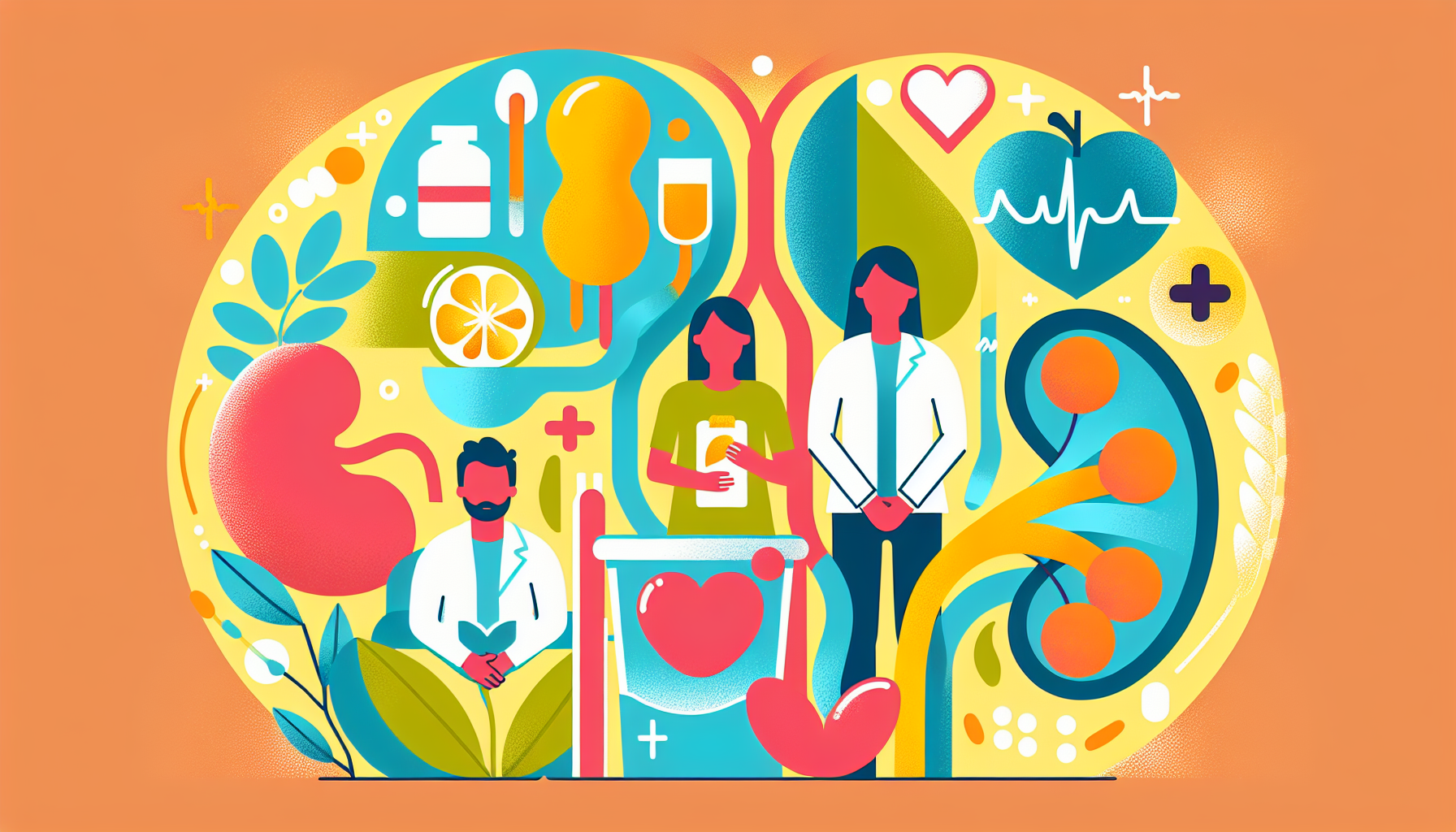Kidney-Friendly Diet: What to Eat with Chronic Kidney Disease
If you have chronic kidney disease (CKD), it's important to follow a kidney-friendly diet to help protect your kidneys from further damage. A kidney-friendly diet [...]
Read More
Medically reviewed by Alan Lucks | MD, Alan Lucks MDPC Private Practice - New York on October 23rd, 2025.
Chronic kidney disease requires restricting sodium to under 2,000mg daily (about 1 teaspoon of salt), phosphorus to 800-1,000mg, and potassium to 2,000-3,000mg depending on your stage of kidney function.
Protein needs actually vary by CKD stage—early stages may require normal intake (0.8g per kg body weight), while advanced stages need restriction to 0.6-0.8g per kg to reduce waste buildup.
High-phosphorus foods to avoid include dairy products, nuts, beans, and cola drinks, as excess phosphorus can weaken bones and cause dangerous calcium deposits in blood vessels.
Fluid restrictions typically begin when output drops below 1,000mL daily—most patients need to limit intake to 32-48 ounces per day in advanced stages.
Reading nutrition labels becomes critical since processed foods can contain 75% of daily sodium limits in a single serving, plus hidden phosphorus additives that aren't absorbed naturally.
If you have chronic kidney disease (CKD), it's important to follow a kidney-friendly diet to help protect your kidneys from further damage. A kidney-friendly diet involves limiting certain foods and fluids to prevent the buildup of waste products, minerals, and fluid in your body.
A kidney-friendly diet is a way of eating that helps support your kidney health. When you have CKD, your kidneys can't efficiently remove waste and extra fluid from your body. By limiting certain foods and fluids, you can reduce the amount of waste and fluid your kidneys have to process.
Your doctor or a registered dietitian can help you create a personalized kidney-friendly meal plan based on your stage of CKD and other health factors.

Here are some key components of a kidney-friendly diet:
Limiting sodium intake is crucial for managing blood pressure and reducing fluid retention. Aim for less than 2 grams of sodium per day by:
Avoiding table salt and high-sodium seasonings
Cooking meals at home instead of eating fast food
Using herbs and spices in place of salt
Choosing fresh or low-sodium packaged foods
Rinsing canned foods before serving
When you have CKD, your body may not properly regulate phosphorus and calcium levels. Limiting phosphorus to 1,000 mg per day can help prevent bone weakening. Choose foods like:
Fresh fruits and vegetables
Corn and rice cereals
Light-colored sodas
Low-phosphorus dairy products (brie, Swiss cheese, cream cheese, sherbet)
Some people with CKD need to limit potassium to avoid heart problems. If your doctor recommends a low-potassium diet, choose foods like:
Apples, cranberries, strawberries, blueberries, plums, pineapples, peaches
Cabbage, boiled cauliflower, asparagus, green beans, celery, cucumber
In later stages of CKD, your doctor may advise you to limit fluids and protein, especially from animal sources. You may also need to increase your iron intake. Discuss these changes with your healthcare provider.
The DASH diet, which emphasizes fruits, vegetables, whole grains, and lean proteins, may be beneficial for some people with early-stage CKD. However, it's not suitable for those on dialysis.
By working closely with your healthcare team and following a personalized kidney-friendly diet, you can support your kidney health and overall well-being while living with CKD.
Success with kidney-friendly eating depends on working closely with a renal dietitian to create personalized restrictions based on your specific lab values and disease stage. Focus on fresh, whole foods while carefully measuring portions and tracking daily intake of key nutrients. If you're experiencing swelling, fatigue, or changes in urination that might indicate kidney problems, Doctronic can help you understand your symptoms and next steps.
If you have chronic kidney disease (CKD), it's important to follow a kidney-friendly diet to help protect your kidneys from further damage. A kidney-friendly diet [...]
Read More